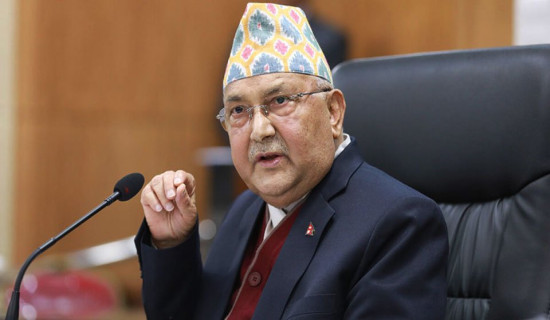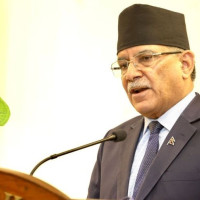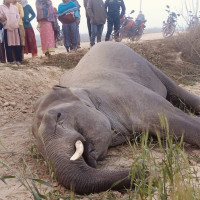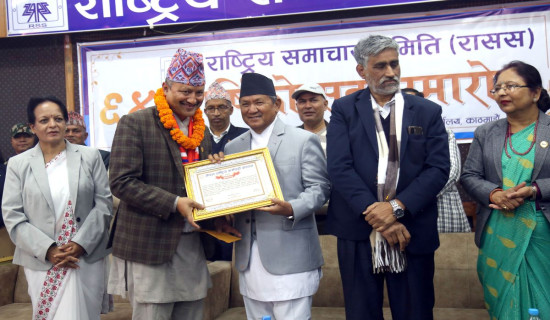- Thursday, 20 February 2025
When We Look Away
Nepal Yatayat, the one from Tikathali to Baneshwor to Teaching Hospital to Chabahil, storms through the city like it owns the roads. The driver cuts through traffic with reckless confidence, while the conductor crams in passengers with ruthless precision. Standing in the aisle means gripping the handrail with all your might, your body swaying violently with each turn and abrupt stop. Even seated, you’re at the mercy of every jolt, your bones rattling, your stomach twisting.
A few days ago, I was on this very bus, heading home, when a scene unfolded before me —one I won't forget. A man in his early thirties, his face pale and strained, nearly collapsed in the aisle, gasping for breath. He pleaded with the conductor. “Enough! Stop letting more passengers on,” his voice weakening with each word. But the conductor barely acknowledged him. “Can’t stop here. There’s traffic.” Desperation dripped from his words as he begged, “I’ll pay the fine, just let me off! Open the windows!” But the bus didn’t stop until a minute later, at a nearby station. The man stumbled out, gasping, shaking as he handed over his fare, his struggle fading into the distance as he disappeared into the crowd.
Inside, the space that had been buzzing with hushed gossip fell into an eerie silence. No one met anyone’s eyes. No one spoke. The bus lurched forward as if nothing had happened, as if a man hadn’t just fought for his life among us. How did we let this unacceptable scene slip so easily into the routine? Accepted without question, without thought.
We saw his struggle. But the moment he stepped off, the urgency vanished. The conductor moved on, the driver kept driving, and the passengers fell back into their private worlds. What if he had died right there, suffocated in front of us? Would we have felt it—only after it was too late?
In The Death of Ivan Ilyich, Tolstoy reveals this very uncomfortable truth: we ignore suffering until it becomes undeniable. Ivan’s slow death uncovers the hollowness of a life built on empty values. In the end, as his pain intensifies, those around him withdraw — not out of cruelty, but because they can’t bear to face the uncomfortable truth that his inevitable end will come for them too.
Wasn’t that what happened on the bus? A man nearly lost his life, and we turned away. Had he collapsed, we would have grieved — for a moment. The news would spread, blame would be cast, but soon enough, life would move on. The bus would keep running. Passengers would shuffle in. But suffering doesn’t wait for us to be ready. Perhaps the real question isn’t how we became indifferent, but why we only seem to care when it’s already too late. Why do we wait for pain to reach its breaking point before we act? We avert our gaze until the weight of it becomes too heavy to ignore. Why this delay in empathy?
The answer lies in how we measure value. When we reduce life to mere transactions — profit over people — we blind ourselves to its true cost. But what if we learned to see with greater awareness, recognising that every moment, every struggle, is a call for connection? Only then, when we acknowledge the fleeting nature of life, can we break free from detachment and truly care — before it’s already gone.



-original-thumb.jpg)













